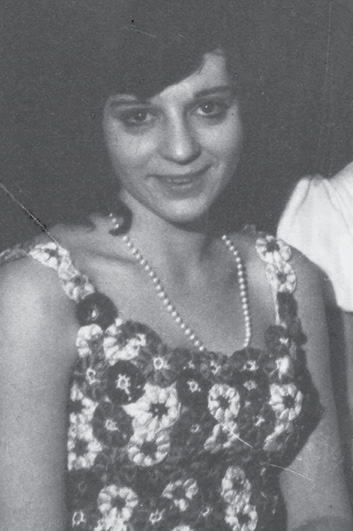
Alicia Raboy at age twenty-three in October 1971 (Courtesy Gabriel Raboy) xvii
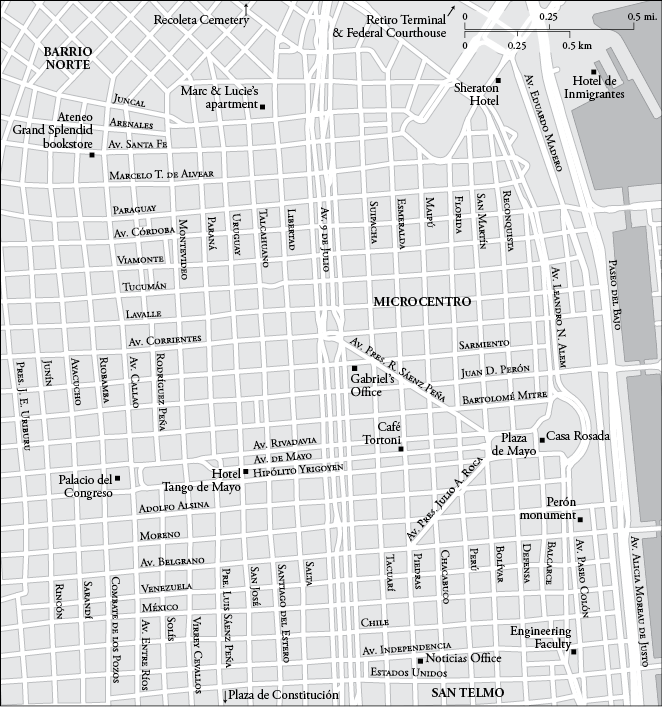
Buenos Aires (detail)
Chapter 1
So Are We Related?
What would you say about going to Argentina? My partner, Lucie, wasnt wasting any time looking for a project now that I was retiring from teaching.
Absolutely! I replied. Argentina was near the top of my bucket list for travel and Lucie was eager to use the Spanish she had been studying intensively for some time.
Aside from the allure of a trip to South America, Id always had a subliminal interest in Argentina. My grandfather Moishe Raboy, born in 1886, had gone there as a young man from Zhabokrych, his native village in Ukraine. He spent about a year in Buenos Aires, returned home, married my grandmother, and then set out again, this time to Canada.
Thats all I knew. Although Id always wished I knew more about my grandfathers Argentine adventure (I was sure it was an adventure), I never got to talk to him about it. He was in his sixties by the time I came into the picture, and it never really occurred to me to explore the matter on my own until this travel idea came up, in March 2018.
Getting ready for the trip, I found myself thinking more pointedly about my grandfathers journey. Why would a Jewish fishmongers son from Zhabokrych go halfway around the world to a country where he knew no one? Did we have relatives there? On a whim, I googled Raboy Argentina.
I was not at all prepared for what I found. One of the first items that came up was a biography of one of Argentinas most celebrated poets, Francisco Paco Urondo, who was murdered by a security commando in June 1976, in the early days of Argentinas last military dictatorship. When Paco Urondo was taken down in broad daylight in the Andean city of Mendoza, he was with his companion, a journalist. She was whisked away by the killers, along with their infant daughter, and was never seen nor heard from again. Her name was Alicia Raboy.
A chill came over me as I absorbed the details of Alicias story. Alicia and Paco were members of the Montoneros, a revolutionary organization and Argentinas most consequential urban guerrilla group of the 1970s. I remembered that when news of Argentinas desaparecidosthe disappearedbegan to be reported, I occasionally wondered what my fate might have been had my grandfather remained in Argentina. Here, on the screen before me, was one possible answer to that question.
Like so many of my generation, I had been involved in political activism, to a degree. I was never a member of any revolutionary organization but I knew people who were, and in Argentina that would have been enough. Argentina in the 1970s turned out to be a deadly place for youthful idealism. As many as thirty thousand people, mostly in their twenties, were killed or disappeared (which became a verb during this era) between 1975 and 1983 in what Argentinians commonly refer to today as the period of terrorismo de Estadostate terrorism.
Continuing my internet search, I found that, more than forty years after her disappearance, Alicia remains a haunting presence. Alicia Raboy and Paco Urondos daughter, ngela, was eleven months old and in the car with them when they were ambushed in that Mendoza street. ngela only discovered her parents story as an adult and has written a memoir about politics and identity called Quin te cres que sos? (Who Do You Think You Are?). Abducted as well in the event that disappeared her mother, ngela was miraculously found and recovered by her family. However, she grew up in the shadow of a deep secretas a child, she was never told who her father was or what had happened to her parents. Today she is an artist, writer, and university lecturer as well as a human rights activist and a dynamic force among children of the disappeared, most of whom are now in their forties. Through ngelas work, Alicia has become one of the many symbols of the unfinished business of Argentinas so-called Dirty War (an unfortunate label often used unwittingly by English-speakers but considered abhorrent in Argentina because of its association with the military dictatorship that coined the term).
I felt a strong and immediate kinship to Alicia. Apart from political and generational affinitieswe were born a month apart, in 1948we shared an uncommon family name. A handful of Raboys emigrated to the New World from the Russian Empires Pale of Jewish Settlement in the early decades of the twentieth century, all of them from the border area where modern-day Ukraine meets Moldova. Some settled in the United States, some in Canada, some in Argentina. Only a few remained in Europe, and most of those did not survive.
Like my own father, Alicias father, No Raboy (known as uque), was from the province of Podolia in southwestern Ukraine. After his parents were murdered in a pogrom when he was six or seven years old, uque was adopted by an aunt and uncle in Argentina. After travelling across Europe and the Atlantic Ocean alone, he arrived in Buenos Aires in 1925 at the age of twelve. My familys exodus from the same region was similar if less tragic. My grandfather arrived in Canada in 1914 but war in Europe, the Bolshevik Revolution, and the chaos of civil war in Russia prevented my grandmother and their children from joining him. After narrowly surviving a pogrom in 1920 my grandmother gathered my father, my aunt, and an orphaned nephew and they made their way to Canada. My father, Sam Raboy, was nine years old when their ship docked in Quebec City in 1921; he was born in 1912. uque Raboy, Alicias father, was born in 1913. Their birthplaces, our ancestral villages, are some 60 kilometres apart.
Im not easily shaken, but I was that night. I managed to find ngelas address on the web and with Lucies help with Spanish, emailed her, with the subject line raboy a raboy:
Dear ngela Urondo Raboy,
My name is Marc Raboy. I am a Canadian writer and professor. I discovered you while doing an internet search in preparation for a visit to Argentina.... In fact, my grandfather Moses Raboy spent a year in Argentina at the start of the twentieth century, before finally immigrating to Canada. My family knows absolutely nothing about this adventure but I have always wondered whether we didnt have relatives in Argentina. I still wonder, but now I know that at least there are people there with the same name!
I was born in February 1948barely a month after your mother. When I mention this it gives me the shivers. During the 1970s I was myself an activist in various left-wing political movements in Quebec. When we used to hear about Argentinas disappeared, I often asked myself what would have happened to me if my grandfather had remained in Argentina rather than come to Canada. That said, I feel an indescribable affinity with your late mother.
Forgive this intrusion but I took the liberty to write to you as I see that you are someone who values history, family, and identity. I would be delighted if we could meet when I am in Buenos Aires...
I was disappointed but not surprised that she didnt reply to this approach from out of the blue. Nonetheless, a few days before leaving Montreal, I resent the message. This time, she answered.
Dear Marc,
I received this email with pleasure. I was travelling and I am only now catching up with correspondence, so I apologize for the delay in responding. Surely we have the same Ukrainian origin and many points in common. I find the dialogue between our stories very interesting, a familiarity that can occur in spite of time and distance. You are similar to Jos Luis, who was my mothers younger brother, and has already passed away. Im going to forward your email to my other uncle, Gabriel (there are few left to consult in our family); I know he will be happy. And of course it will be a pleasure to meet for a while.... Here is my mobile number for easier communication, and also some photos of my grandfather No Raboy, uque.
Next page

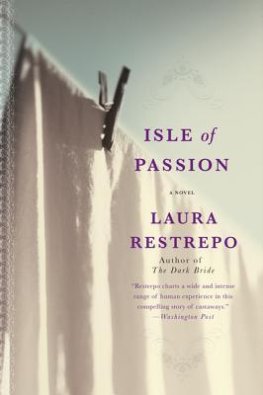

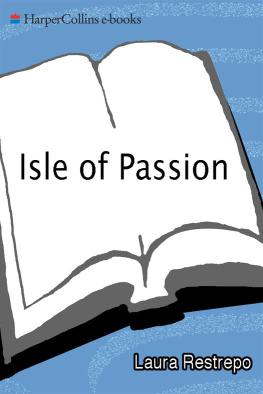
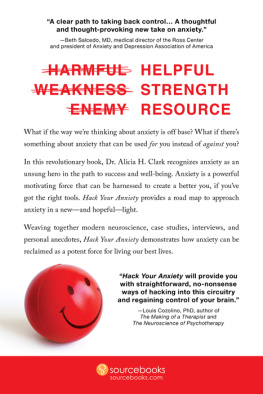
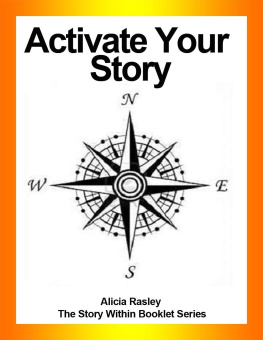


 Alicia Raboy at age twenty-three in October 1971 (Courtesy Gabriel Raboy) xvii
Alicia Raboy at age twenty-three in October 1971 (Courtesy Gabriel Raboy) xvii  Buenos Aires (detail)
Buenos Aires (detail)